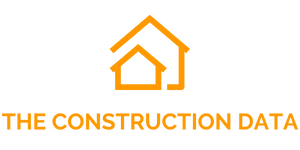
New Research Reveals Tax Incentives Drive Housing Growth
Housing affordability remains a pressing concern for communities nationwide. Local tax incentives designed to stimulate new housing development have proven to be an effective strategy, creating more places for people to live while simultaneously generating long-term municipal revenue to support essential community services.
“With the nation facing a shortage of housing of all types, this work clearly demonstrates that tax incentive programs offer a real solution to the building of badly needed housing in communities across the country,” said NMHC President Sharon Wilson Géno.
Tax Incentives: A Catalyst for Housing Development
Recent research conducted by RCLCO’s Charlie Hewlett, Caroline Flax Ganz, and Jackson Browning highlights that property tax-based incentives, when strategically implemented, help alleviate housing shortages. These programs reduce financial barriers for developers, making it easier to build both affordable and market-rate housing. The long-term benefits include increased economic activity, a more robust housing supply, and improved affordability.
Despite these advantages, some municipalities remain cautious, concerned about the potential short-term impact on their budgets. However, the research underscores that the long-term financial gains—through expanded tax bases and increased local spending—far outweigh the initial revenue deferrals.
Key Findings from the Study
The study, supported by the Douglas M. Bibby NMHC Research Foundation, analyzed the effects of tax incentives across several U.S. cities. The key findings include:
- Direct and Indirect Impact on Housing Affordability: Tax abatement programs directly contribute to affordable housing by encouraging the development of deed-restricted units. They also indirectly improve affordability by boosting the supply of market-rate housing, which helps ease overall demand pressures.
- Bridging Financing Gaps: Tax-based incentives help developers overcome financing challenges, particularly in markets with high affordability constraints. By reducing the financial risks associated with new construction, these programs make it feasible to build more housing units.
- Enhanced Municipal Revenue: While tax incentives reduce property tax collections in the short term, they ultimately generate greater long-term revenue. As new residents move into newly developed housing, they contribute to the local economy through spending, sales taxes, and other forms of municipal revenue.

- Exceeding Affordable Housing Requirements: In cities with affordable housing mandates, tax incentives often lead developers to build more affordable units than required. This outcome underscores the effectiveness of these programs in addressing the housing needs of low- and moderate-income households.
- Strengthening Community Vitality: Beyond providing housing, new developments attract businesses, create jobs, and stimulate local economies. This ripple effect enhances community vitality, making neighborhoods more desirable places to live and work.
Success Stories from Across the Country
Several cities have successfully leveraged tax incentives to address their housing shortages. For example:
- Seattle, Washington: The city’s Multifamily Property Tax Exemption (MFTE) program has led to the creation of thousands of affordable units within market-rate developments. By offering developers property tax exemptions, Seattle has expanded its affordable housing stock while promoting mixed-income communities.
- Austin, Texas: Through its SMART Housing Program, Austin offers property tax reductions to developers who include affordable units in their projects. This initiative has increased the supply of affordable housing and helped maintain the city’s economic diversity.
- Portland, Oregon: The city’s tax abatement programs encourage the construction of affordable rental housing, particularly in high-demand areas. These incentives have helped Portland address its growing population and rising housing costs.
Legislative Support is Essential
NMHC President Sharon Wilson Géno emphasizes the importance of legislative support for tax incentive programs. “Not only do these programs directly lead to the creation of new affordable and market-rate housing and improve housing affordability, they also directly benefit communities in a variety of ways. This research should encourage lawmakers to support legislative proposals to incentivize the broader use of these tools that will lead to lower housing costs and greater housing opportunity.”
By advocating for policies that facilitate the broader use of tax incentives, lawmakers can help communities overcome their housing shortages. This support is particularly crucial as the nation continues to grapple with the long-term impacts of housing underproduction.
Overcoming Challenges and Misconceptions
While tax incentives offer clear benefits, misconceptions about their impact persist. Some critics argue that these programs reduce municipal revenue, making it difficult to fund essential services. However, the research shows that the long-term benefits far outweigh the initial costs. As new developments are completed, they attract residents who contribute to local economies through spending and sales taxes. Additionally, the increased housing supply helps stabilize property values, supporting long-term revenue growth.
Moreover, tax incentives can be tailored to address specific community needs. For example, municipalities can offer higher incentives for developments that include affordable units, support workforce housing, or revitalize underutilized properties. This flexibility allows cities to achieve their housing goals while maintaining fiscal sustainability.




